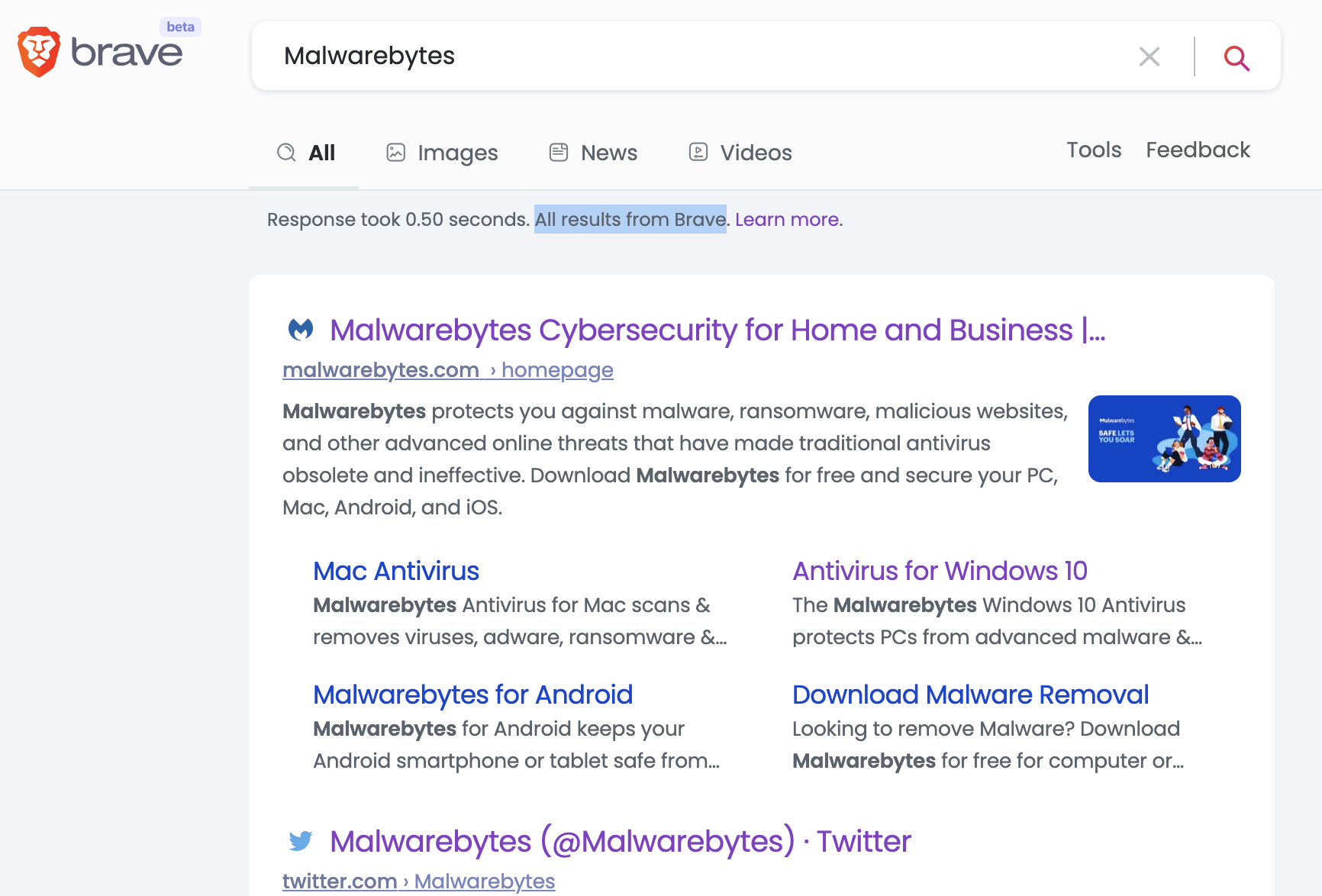The privacy-forward web browser Brave launched its new search engine in beta on Wednesday, promising a more private experience that does not track user searches, build user profiles, or require the use of an external, pre-existing search index to deliver results.
Clear from the company’s early marketing, Brave intends to position its search tool as a foil to Google, telling audiences in a promotional video that using its new search tool alongside its browser provides “the first, independent, 100 percent private alternative to Google Search and Chrome.”
How Brave expects to compete against Google—which owns 92 percent of the global search engine market share—is less clear, as “search” today is not just the delivery of information, but also the integration of that information into a company’s product suite, like when a Google search for a restaurant’s location can auto-populate that restaurant’s address into Google Maps, or when a Google search for movie times considers a user’s location.
For Google, its search business is not just an Internet answer box. It is the oil that both fuels and smooths its online convenience machine.
To its credit, Brave is expanding its offering. The company launched both a news reader and a combination VPN and firewall tool last year, and since 2019, it has implemented a novel advertising model that lets users earn money for viewing “privacy-preserving” ads.
From a certain lens, then, Brave’s growing stable of products begins to resemble a response to Google’s massive data collection regime—a suite of tools that do not prioritize making life easier for the user but making life harder for those who invade user privacy. (The company has also pushed back against FLoC, Google’s new online tracking model released just months ago.)
Brave Search features
Brave Search, which was available to a limited number of users before Wednesday’s beta release, promises users a unique set of features that the company claims no other browser provides. Users will enjoy “fully private, anonymous search,” much like DuckDuckGo, which means that users will not have their searches collected, shared, or sold for advertising purposes, and users will not have profiles built on their search activity.
Users will also get the benefit of transparent search result rankings and a search engine that integrates directly into a web browser made by the same company. In fact, by next year, the company plans to make Brave Search the default search engine in its web browser.
Further, according to the company, Brave Search is one of the rare search engines today that is not built on another company’s search index, meaning that its search results are not just scoured and collected by Google and packaged by their engine. Instead, Brave Search is powered by an independent scan of the Internet—an enormous task which was likely made possible by Brave’s earlier purchase in March of Tailcat, a search engine developed by a team previously working for the privacy-focused web browser Cliqz. That Munich-based company once positioned its own product as an alternative to Google’s search, but it shuttered in May 2020 following disruptions due to coronavirus.
Brave Search also provides a surprising amount of information about its independent search index.
For instance, every single Brave Search query provides basic info about whether the engine relied on third parties—often Google and Bing—to complete the delivered search results. When Malwarebytes Labs searched “Malwarebytes,” Brave Search said that “all results” came from Brave alone. Brave Search also provides users with an “independence metric”—offered as a percentage—from a personal and global perspective. These metrics express the same measurement of whether Brave relied on third parties, but the personal metric is derived from someone’s aggregate, personal searches, whereas the global metric is derived “from all searches, across all people who use Brave Search,” the company said.

As to how Brave Search will make money? The company already hinted at two models—a paid option with no advertisements, and a free option supported by ads. In the Brave Search FAQ, the company wrote that both options could be on the table for users who want to choose.
It is still early days for Brave Search, and competing in the online search market is far from easy. Still, more options for users means more ways that users can take control of how they engage online. Whether enough users will peel away from Google is a different question, because Brave’s big bet isn’t about convenience—it’s about privacy.











